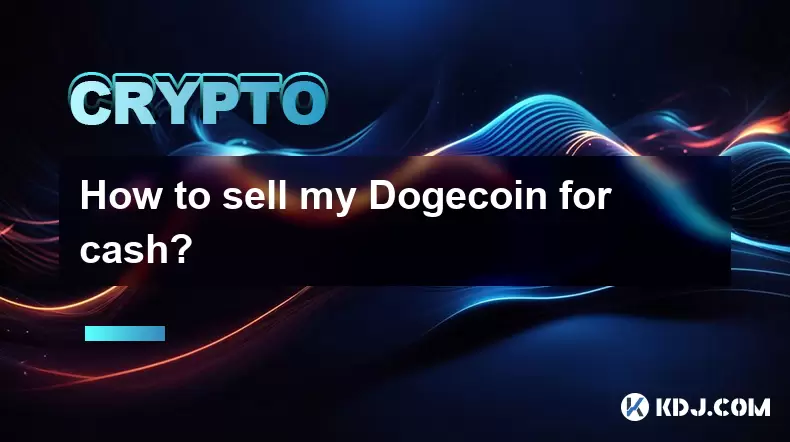-
 Bitcoin
Bitcoin $115100
1.27% -
 Ethereum
Ethereum $3675
2.71% -
 XRP
XRP $2.995
1.45% -
 Tether USDt
Tether USDt $1.000
0.02% -
 BNB
BNB $769.8
2.64% -
 Solana
Solana $168.0
3.25% -
 USDC
USDC $0.9999
-0.01% -
 TRON
TRON $0.3371
1.48% -
 Dogecoin
Dogecoin $0.2051
3.36% -
 Cardano
Cardano $0.7394
2.30% -
 Hyperliquid
Hyperliquid $38.15
0.42% -
 Stellar
Stellar $0.3966
-0.36% -
 Sui
Sui $3.486
2.93% -
 Chainlink
Chainlink $16.72
2.52% -
 Bitcoin Cash
Bitcoin Cash $568.0
4.36% -
 Hedera
Hedera $0.2440
2.59% -
 Ethena USDe
Ethena USDe $1.001
0.04% -
 Avalanche
Avalanche $22.16
2.06% -
 Litecoin
Litecoin $119.1
-0.73% -
 UNUS SED LEO
UNUS SED LEO $8.991
0.04% -
 Toncoin
Toncoin $3.232
-0.39% -
 Shiba Inu
Shiba Inu $0.00001233
2.82% -
 Uniswap
Uniswap $9.717
2.53% -
 Polkadot
Polkadot $3.664
1.85% -
 Dai
Dai $1.000
0.01% -
 Monero
Monero $281.2
-3.89% -
 Bitget Token
Bitget Token $4.350
1.55% -
 Cronos
Cronos $0.1428
5.07% -
 Pepe
Pepe $0.00001050
3.68% -
 Aave
Aave $262.3
3.54%
What steps are required for Maker (MKR) transactions? Is the handling fee high?
To engage with MKR, understand buying, selling, and transferring steps, and consider exchange, network, and withdrawal fees for effective crypto navigation.
May 02, 2025 at 07:08 am

When it comes to engaging with the cryptocurrency ecosystem, understanding the mechanics of transactions involving specific tokens like Maker (MKR) is essential. This article will guide you through the steps required for MKR transactions and discuss the associated handling fees. Whether you're buying, selling, or transferring MKR, having a clear understanding of the process can help you navigate the crypto world more effectively.
Understanding Maker (MKR)
Maker (MKR) is the governance token of the MakerDAO platform, which is responsible for managing the DAI stablecoin. MKR holders have the power to vote on important decisions regarding the platform's development and operation. As a result, MKR plays a crucial role in the decentralized finance (DeFi) ecosystem.
Steps for Buying Maker (MKR)
To purchase MKR, you will typically follow these steps:
Choose a reputable cryptocurrency exchange: Platforms like Coinbase, Binance, and Kraken offer MKR trading pairs. Research the exchange's reputation, security measures, and fees before proceeding.
Create an account: Sign up on the chosen exchange by providing the required personal information and completing the verification process, which may involve identity verification (KYC).
Deposit funds: Fund your account with either fiat currency or another cryptocurrency. The method of deposit will depend on the exchange's available options.
Place an order: Navigate to the MKR trading section and place an order. You can choose between a market order, which executes at the current market price, or a limit order, which allows you to set a specific price at which you want to buy.
Confirm the transaction: Review the details of your order and confirm the purchase. The MKR will be credited to your exchange wallet once the transaction is complete.
Steps for Selling Maker (MKR)
Selling MKR follows a similar process but in reverse:
Access your exchange account: Log in to the exchange where you hold your MKR.
Transfer MKR to the exchange wallet: If your MKR is stored in an external wallet, transfer it to your exchange wallet. This step may take some time depending on network congestion.
Navigate to the MKR trading section: Find the MKR trading pair you wish to use for selling.
Place a sell order: Decide between a market order or a limit order, depending on your desired selling price.
Confirm the transaction: Review and confirm the sell order. The MKR will be debited from your exchange wallet, and the proceeds will be credited in the chosen currency.
Steps for Transferring Maker (MKR)
Transferring MKR between wallets involves the following steps:
Select the sending wallet: Open the wallet from which you want to send MKR. This could be an exchange wallet, a hardware wallet, or a software wallet.
Enter the recipient's address: Carefully enter the recipient's MKR address. Double-check the address to avoid sending funds to the wrong destination.
Specify the amount: Enter the amount of MKR you wish to send. Make sure you leave enough for transaction fees.
Set the gas fee: On the Ethereum network, you will need to set a gas fee, which affects the speed of the transaction. Higher gas fees result in faster processing.
Review and confirm: Review the transaction details, including the recipient's address, the amount, and the gas fee. Once satisfied, confirm the transaction.
Wait for confirmation: The transaction will be processed on the Ethereum blockchain. Wait for the required number of confirmations before considering the transfer complete.
Handling Fees for MKR Transactions
The handling fees for MKR transactions can vary depending on several factors:
Exchange fees: When buying or selling MKR on an exchange, you will typically encounter trading fees. These fees are usually a percentage of the transaction amount and can range from 0.1% to 0.5% or more, depending on the exchange and your trading volume.
Network fees: For transferring MKR on the Ethereum network, you will need to pay gas fees. These fees are used to incentivize miners to process your transaction. Gas fees can fluctuate based on network congestion, with higher fees required during peak times.
Withdrawal fees: Some exchanges charge a fee for withdrawing MKR to an external wallet. These fees vary by exchange and can be a flat rate or a percentage of the withdrawn amount.
It's important to note that while fees can add up, they are a necessary part of participating in the cryptocurrency ecosystem. Always review the fee structure of your chosen platform and consider the timing of your transactions to manage costs effectively.
FAQs
Q: Can I stake MKR to earn rewards?
A: Unlike some other cryptocurrencies, MKR is not typically staked for rewards. Instead, MKR holders can participate in governance by voting on proposals related to the MakerDAO platform.
Q: How can I store MKR securely?
A: MKR can be stored in various types of wallets, including hardware wallets like Ledger or Trezor, software wallets like MetaMask, or even on exchanges. For long-term storage, hardware wallets are generally considered the most secure option.
Q: Are there any tax implications when trading MKR?
A: Yes, trading MKR can have tax implications depending on your jurisdiction. In many countries, profits from cryptocurrency trading are subject to capital gains tax. It's advisable to consult with a tax professional to understand your specific obligations.
Q: Can I use MKR to borrow or lend on the MakerDAO platform?
A: While MKR itself is not used as collateral for borrowing on the MakerDAO platform, it plays a crucial role in the governance and stability of the system. Users can deposit other assets as collateral to mint DAI, the stablecoin managed by MakerDAO.
Disclaimer:info@kdj.com
The information provided is not trading advice. kdj.com does not assume any responsibility for any investments made based on the information provided in this article. Cryptocurrencies are highly volatile and it is highly recommended that you invest with caution after thorough research!
If you believe that the content used on this website infringes your copyright, please contact us immediately (info@kdj.com) and we will delete it promptly.
- HashFlare Founders Face the Music: Jail Time Looms?
- 2025-08-07 14:30:12
- Toshi on Binance.US: A Memecoin's Big Break
- 2025-08-07 14:30:12
- Bitcoin, SPAC Mergers, and Parataxis: A New Yorker's Take on Crypto's Wall Street Moment
- 2025-08-07 14:50:27
- Bitcoin, Collateral, and Loan Strategies: A New York Minute on the Future of Finance
- 2025-08-07 14:50:27
- Ethereum's Bullish Surge: Reclaiming Crypto Leadership, a New York Minute
- 2025-08-07 14:55:12
- BlockDAG, Litecoin, and Cardano: Charting the Course in Crypto's Dynamic Waters
- 2025-08-07 09:09:06
Related knowledge

How to sell my Bitcoincoin for cash?
Aug 07,2025 at 02:14pm
Understanding the Basics of Selling Dogecoin for CashSelling Dogecoin for cash involves converting your DOGE tokens into a fiat currency such as USD, ...

What is Chainlink (LINK)?
Jul 22,2025 at 02:14am
Understanding Chainlink (LINK): The Decentralized Oracle NetworkChainlink is a decentralized oracle network designed to bridge the gap between blockch...

What is Avalanche (AVAX)?
Jul 22,2025 at 08:35am
What is Avalanche (AVAX)?Avalanche (AVAX) is a decentralized, open-source blockchain platform designed to support high-performance decentralized appli...

What is Polkadot (DOT)?
Jul 19,2025 at 06:35pm
Understanding the Basics of Polkadot (DOT)Polkadot (DOT) is a multi-chain network protocol designed to enable different blockchains to transfer messag...

What is Litecoin (LTC)?
Jul 23,2025 at 11:35am
Overview of Litecoin (LTC)Litecoin (LTC) is a peer-to-peer cryptocurrency that was created in 2011 by Charlie Lee, a former Google engineer. It is oft...

What is Monero (XMR)?
Jul 21,2025 at 10:07am
What is Monero (XMR)?Monero (XMR) is a decentralized cryptocurrency designed to provide enhanced privacy and anonymity for its users. Unlike Bitcoin a...

How to sell my Bitcoincoin for cash?
Aug 07,2025 at 02:14pm
Understanding the Basics of Selling Dogecoin for CashSelling Dogecoin for cash involves converting your DOGE tokens into a fiat currency such as USD, ...

What is Chainlink (LINK)?
Jul 22,2025 at 02:14am
Understanding Chainlink (LINK): The Decentralized Oracle NetworkChainlink is a decentralized oracle network designed to bridge the gap between blockch...

What is Avalanche (AVAX)?
Jul 22,2025 at 08:35am
What is Avalanche (AVAX)?Avalanche (AVAX) is a decentralized, open-source blockchain platform designed to support high-performance decentralized appli...

What is Polkadot (DOT)?
Jul 19,2025 at 06:35pm
Understanding the Basics of Polkadot (DOT)Polkadot (DOT) is a multi-chain network protocol designed to enable different blockchains to transfer messag...

What is Litecoin (LTC)?
Jul 23,2025 at 11:35am
Overview of Litecoin (LTC)Litecoin (LTC) is a peer-to-peer cryptocurrency that was created in 2011 by Charlie Lee, a former Google engineer. It is oft...

What is Monero (XMR)?
Jul 21,2025 at 10:07am
What is Monero (XMR)?Monero (XMR) is a decentralized cryptocurrency designed to provide enhanced privacy and anonymity for its users. Unlike Bitcoin a...
See all articles

























































































